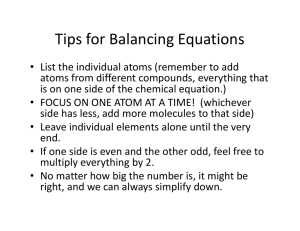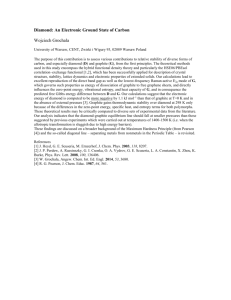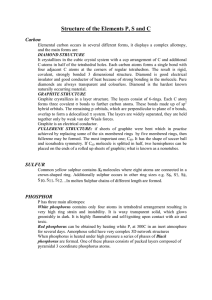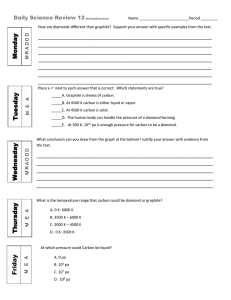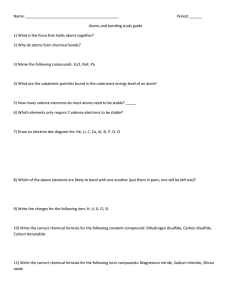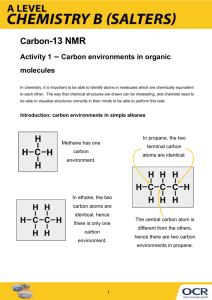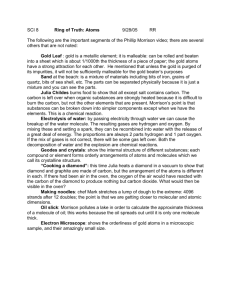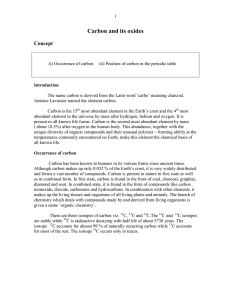CARBON AND ITS COMPOUNDS
advertisement
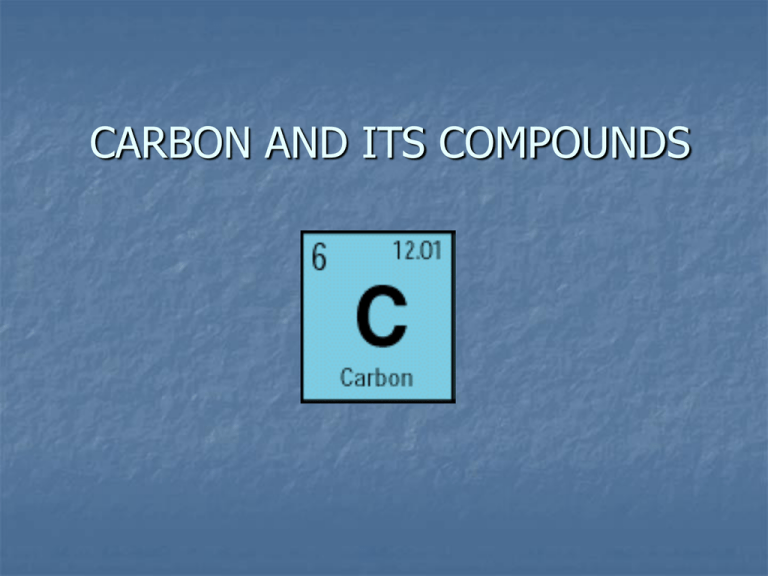
CARBON AND ITS COMPOUNDS CARBON Carbon belongs to the group IV of the periodic table. It has four electrons in its outermost orbit, so its valency is four. Carbon is a non-metal. Compounds of Carbon are Widely Distributed in Nature The number of carbon compounds is larger than that of all other elements put together. Why so many Carbon Compounds in nature? Because carbon is chemically unique. Only carbon atoms have the ability to combine with themselves to form long chains Carbon- Long Chains A long chain, in turn, provides a convenient backbone of atoms to which other atoms can attach themselves in a variety of ways Allotropes of Carbon In nature, pure carbon occur in two formsDiamond Graphite What are Allotropes ? Allotropes are elements which are chemically identical, but they differ markedly in their physical properties. Diamond and Graphite – two allotropes of carbon differ in their physical properties. Physical Properties of Diamond and Graphite Property Diamond Graphite Appearance Transparent Black, Shiny Hardness Very Hard Soft, slippery to touch Thermal Conductivity Very poor moderate Electrical Conductivity Poor Good conductor Density(kg/m3) 3510 2250 Uses Jewellery, drilling Dry cell, electric arc, lubricant, pencil lead How Diamond and Graphite are chemically identical? These results of thes experiments answer this question: On heating diamond or graphite in the air, they burn completely to form carbon dioxide. Equal quantities of diamond and graphite when burned, produce exactly the same amount of carbon dioxide. Why the physical properties of diamond and graphite are so different? Due to the difference in the arrangement of carbon atoms in diamond and graphite Hydrocarbons Hydrocarbons are compounds of carbon and hydrogen. The natural source of hydrocarbons is petroleum (crude oil) The Simplest Hydrocarbon Methane CH4 A molecule of methane has four hydrogen atoms linked to one central atom of carbon. S a t u r a t e d H y d r o c a r b o n s A l k a n e s Alkanes The hydrocarbons methane, ethane propane and butane form a series of carbon compounds known as alkanes The alkane series can be represented by the general formula Isomerism Compounds having the same molecular formulae but different structural arrangement of atoms in them are known as isomers, and the phenomenon is known as isomerism Isomers of Butane – Obtained by rearranging the carbon and the hydrogen atoms Unsaturated Hydrocarbons Unsaturated hydrocarbons contain a double or triple bond between two carbon atoms. The one with double bond are called alkenes Alkenes Alkynes Unsaturated hydrocarbons which contain triple bond between two carbon atoms.
